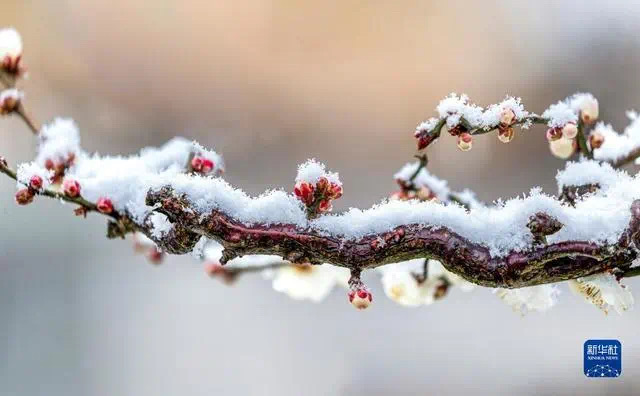Dahan, known as Major Cold in English, is the final solar term of the lunisolar year, and usually falls around January 20th.

Yuan Zhen, a Tang Dynasty poet wrote:
大寒宜近火,无事莫开门。
Dàhán yí jìn huǒ, wú shì mò kāimén
During Dahan, draw near the fire. Open the door only when necessary.
In the north, Dahan is not as cold as Xiaohan, but for most parts of southern China, these are the coldest days of the year. Before the refrigerator came along, people would collect ice during this period and store it in the cellar for use in the summer.
Since Dahan is close to Spring Festival, the two occasions share several customs. In Beijing, for instance, it is customary to consume "dispelling-cold cake" - Xiao hangao.
Made from sticky rice powder, the cake aids in resisting the harsh cold due to its high calorie content. Moreover, in Chinese, the term "rice cake" shares the same pronunciation as the phrase "higher in a new year" - good luck, promotions or academic success.
In southern China, smoked and cured delicacies are a traditional culinary delight during the deep freeze. Each province has its own speciality. In Guangdong, Sichuan, and Hunan, it's pork belly but for those who live along the Yangtze, it's fish.
The cold of Dahan is welcomed as far as possible, as it signifies the transition of winter into spring.
Middle Tang Dynasty poet Yuan Zhen anticipated spring thus:
明朝换新律,梅柳待阳春。
Míng cháo huàn xīn lǜ, méi liǔ dài yángchūn
Tomorrow, new rules emerge. The plum and willow await the dawn of spring sunshine.
Yuan's yearning for spring after winter is a commonplace one. His line foresaw American writer Hal Borland, who said:
No winter lasts forever, no spring skips its turn.
大寒,为中国传统农历中冬季的最后一个节气,通常在公历1月20日左右。与小寒一样,大寒也是标志天气寒冷。古代诗人元稹曾写道:“大寒宜近火,无事莫开门。”这句诗精确地描述了大寒时节的严寒景象。在中国北方,大寒不如小寒那样寒冷,但对于大部分中国南方地区来说,它是一年中最寒冷的时期。在冰箱出现之前,人们会在这个时期收集冰块,并将其放入地窖以备夏季使用。
由于大寒接近春节,两个时节有些相似的习俗。例如,在北京,人们习惯在大寒期间食用“消寒糕”,这种糕点由糯米粉和各种食材制作而成,因其高热量而有助于抵御严寒。此外,在中文里,“糕”与“高”谐音,象征着好运、晋升或学业进步。
在中国南方,腊肉是这个时期的传统美食。然而,南方的不同省份有不同的制作方法。在广东、四川和湖南等省份,腊肉常常使用五花肉,而江南的居民更喜欢使用鱼作为原材料。
尽管大寒的寒冷天气带来不便,它也标志着由冬向春的过渡。元稹的诗句“明朝换新律,梅柳待阳春”表达了他对春天的期待,对严寒冬季过后新一年的期盼。元稹的诗句让人想起美国作家哈尔·伯兰所说的一句名言:“没有冬天会永远持续,没有春天会被跳过。”
